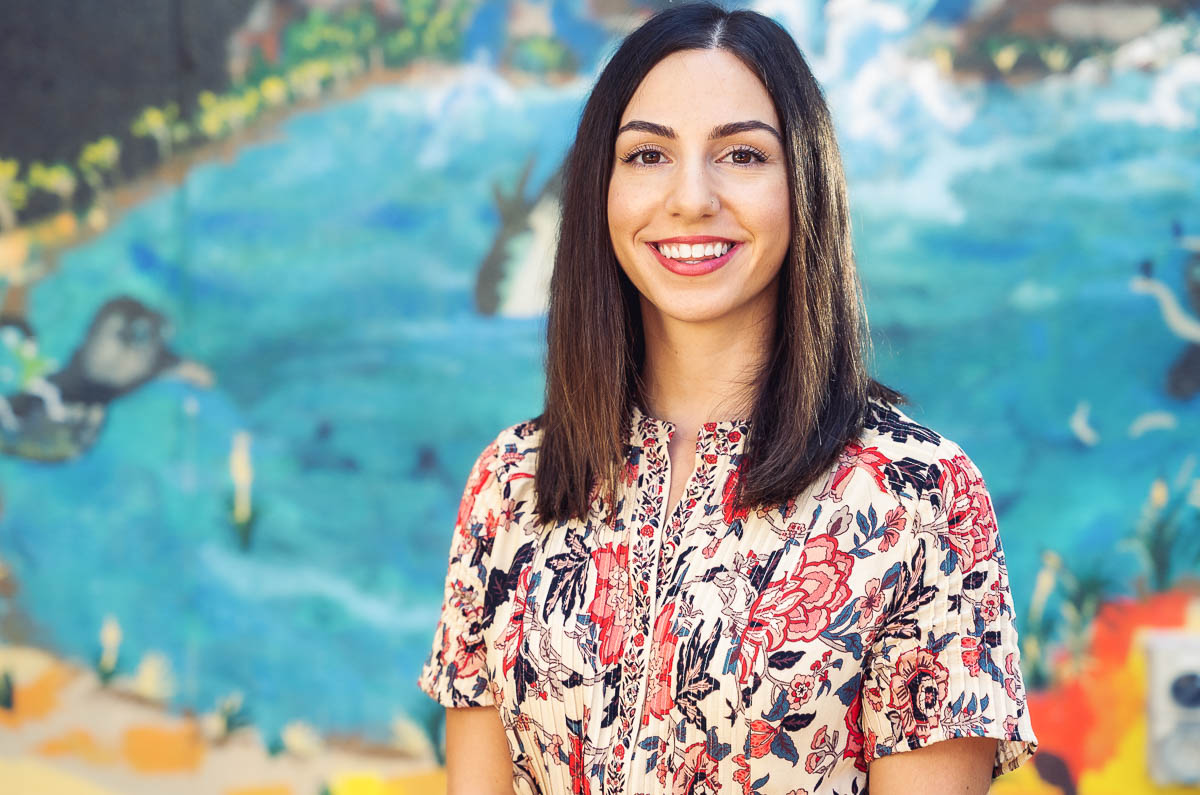
Addressing a problem that she endured through childhood has created an exciting research pathway for Flinders Honours student Olivia Bellas. We spoke with her about the difficulties facing girls in primary schools having early menstruation and how her research can provide necessary help.
What is your role and what does your work focus on?
I work as a research assistant for the Caring Futures Institute in the College of Nursing and Health Sciences, with Dr Jessica Shipman. We are currently working on the initial stages of a study which will investigate the needs of girls with early menarche (menstruation) in South Australian primary schools.
What journey brought you to this point in your career?
My desire to study medicine led me to undertake an Honours degree in Medical Science at Flinders in 2021. My project was on supportive cancer care but as a part of the Honours coursework, we were required to design a unique hypothetical research grant proposal on a completely different topic.
Based on my personal experience with early menarche and noticing an evident gap in the existing literature, I decided to write my research proposal on this topic. I was fortunate that my Honours supervisors saw potential in the study for a Flinders Foundation Seed Grant application. We approached Flinders researchers with expertise in this area to see if they would be interested in collaborating and, thankfully, a wonderful group was keen to be involved. The application was further developed with the valuable input of Dr Shipman, Dr Monique Mulholland, Dr Stefania Velardo, Dr Nina Sivertsten, Associate Professor Ivanka Prichard and Dr Emma Kemp, and the project was awarded a 2021 Flinders Foundation Seed Grant.
What do you love most about your work?
I love research because of its potential to effect positive change in the real world. It’s a very exciting prospect that this study could lead to further research which can enhance a bad school experience for girls with early menarche.
What is something you are most proud of?
I’m incredibly grateful that I was offered the opportunity to take what was originally a hypothetical research grant into a real-life study that could change the experiences of young girls with early menarche. I’m also very proud to be working with an amazing group of women on this project. They have inspired me and driven me and I cannot thank them enough.
What does a normal day look like for you?
I’m still quite new to the role, but every day is busy. So far, my days have involved writing ethics applications, meetings and lots and lots of reading! When I’m not busy working on the study, I’ve been busy writing manuscripts for publication of the studies from my Honours year.
How do you like to relax or spend your spare time?
I like to spend my spare time with friends and family, as well as keeping active. I enjoy running, Pilates and taking my Chocolate Labrador, Stevie, out for walks.

